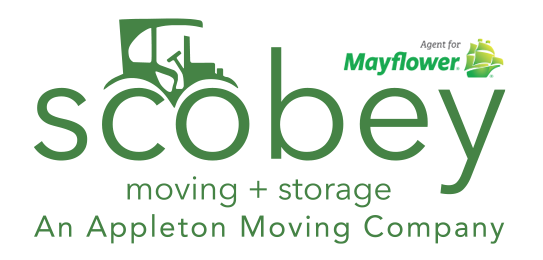Making a move for your career is a big step. A relocation brings excitement, opportunity, and (let’s face it) also some stress. It’s exciting to imagine a new chapter of your professional journey, but it’s also perfectly understandable to feel anxious or overwhelmed by the amount of planning and decision-making involved.
In 2025, trends like hybrid work, lifestyle alignment, and enhanced relocation benefits are shaping the way people approach job-based moves.
When you’re considering moving for work, it’s important to make the relocation as smooth and rewarding as possible. Whether you are relocating for work across the state or to one of the best cities for workers across the country, a strategic approach can help you thrive both at your job and in your new community.
Here at Scobey Moving & Storage, we understand the stress that comes along with relocating for work. It’s our goal to support you through every step, from the first call to settling comfortably into your new home.
Let’s walk through the steps to ensure your work move sets you up for success.

1. Evaluate the Job Offer and Relocation Package
Before you pack your first box, take a close look at what’s on the table. Is your employer offering support for your move? Find out if your potential employer offers a relocation package, and what’s included. Getting clarity at the beginning can save you headaches later on.
You might ask questions like:
- What moving expenses are covered? Will your employer pay for professional movers, packing services, or storage? Some companies offer a lump sum, while others reimburse specific costs. Make sure you know exactly what is included.
- Is housing support available? Are there stipends or assistance for finding housing? When you’re relocating for work, some employers offer assistance for short-term rentals, deposits, or even buying a home.
- Will temporary lodging be provided? Will you need a place to stay while searching for permanent housing? Some of the best cities for workers offer temporary housing options. Find out whether your employer covers hotel stays or corporate apartments if you’re moving for work.
- Are there tax implications? Moving expenses can have tax consequences. Ask your HR department if the benefits are taxable and if they will help with any additional costs.
- What about remote work or flexible relocation timelines? In 2025, many companies offer hybrid or remote options, which can ease the transition for your family. If you need extra time, see if a phased move is possible.
Don’t hesitate to ask about the tax implications of these benefits or whether you’ll be reimbursed for out-of-pocket expenses.
And remember, flexibility is key. Many employers now offer remote options or phased relocation to accommodate family needs. If you’re unsure, ask specific questions: “Is there flexibility in my start date?” or “Can I work remotely during the transition period?”
Don’t forget to:
-
Request a relocation policy in writing.
-
Create a list of questions for your HR contact.
-
Keep all receipts and documentation for reimbursements.

2. Are You Moving to One of the Best Cities for Workers? Understand the Local Job Market
Relocating for work often means starting fresh in a new professional landscape. Beyond your current job, it could be a good time to research potential for future growth.
Consider factors like:
- Is the move a long-term opportunity? Research the stability of your new employer and the overall job market in the city. Since you’re moving for work, are there opportunities for advancement?
- What about secondary job opportunities? If a family member is also working (or if you might want a new role in the future), explore what the local market offers in your field.
- What makes a location one of the best cities for workers? Look for places with diverse industries, strong employment rates, and a vibrant professional network.
Here are some ways to gain insight into an area’s job market:
-
Search for local professional associations or networking groups.
-
Use websites like LinkedIn or Glassdoor to research employers and market trends.
-
Reach out to contacts in the area for informational interviews.
3. Compare the Cost of Living
A job offer might look appealing, but it’s crucial to consider how far your salary will go in your new city. The best cities for workers often have a balance between high wages and reasonable living costs.
- Compare salary to expenses: When you’re relocating for work, it’s important to factor in rent or mortgage, groceries, utility bills, transportation, and childcare. Sometimes a higher salary is offset by a higher cost of living.
- Use online calculators: Tools like Numbeo or SmartAsset can help people moving for work compare the cost of living in your current city versus a new destination.
- Think about long-term affordability: Will you be able to save, invest, and enjoy activities outside of work?
You can get a feel for the cost of living in an area by:
-
Creating a sample monthly budget using estimated expenses.
-
Reviewing local real estate websites for housing prices.
-
Researching public transportation and commute costs.
A city may rank among the best cities for workers, but your individual needs (like school districts, commute times, and quality of life) are what matter most.

4. Research Housing and Neighborhoods
Finding the right place to live can make or break your relocation experience. Consider:
- Proximity to work or transit: Think about how long you’re willing to commute. Is your new home near your office or close to public transportation? Many of the country’s best cities for workers have public transport options for commuters.
- Neighborhood factors: Research safety, school ratings, parks, and walkability. Every family values different amenities, so make a list of what matters most to you before relocating for work.
- Short-term rental options: If you’re not ready to buy, find flexible housing options. Short-term rentals or month-to-month leases give you time to explore and make a well-informed decision.
Moving for work? Here are some ways to find out whether an area is right for you:
-
If possible, visit neighborhoods in person. If an in-person visit isn’t feasible, check out online videos or ask a realtor about a virtual tour.
-
Join local social media groups to get insider information.
-
Make a list of must-haves and nice-to-haves in your new home.
Ask yourself: “What will my daily routine look like here?” A little research at the beginning can mean a lot less stress later.
5. Organize Your Logistics Checklist
Planning ahead keeps your move on track and your stress in check. Here’s what to remember:
- Set your timeline: Coordinate move-out and start dates with your employer.
- Notify important parties: Let HR know your new address, and don’t forget to transfer benefits.
- Coordinate the move: Book a reputable moving company, organize and pack, and plan your travel.
When you’re relocating for work, flexibility is crucial. That’s why we offer adaptable scheduling and services that fit your life, not the other way around.

Making the Most of Your Move
A job relocation is a big decision. But with the right preparation and planning, it can be a launchpad for new adventures and opportunities. We hope that this article helps you approach your move with confidence! While the process involves many moving parts, a solid plan and a great moving partner make all the difference. Here at Scobey, we understand that relocating for work is about more than just a job. It’s about finding a place where you and your family can thrive.
Ready to take the next step? We’d love to help you navigate your move with confidence. Contact Scobey today!


